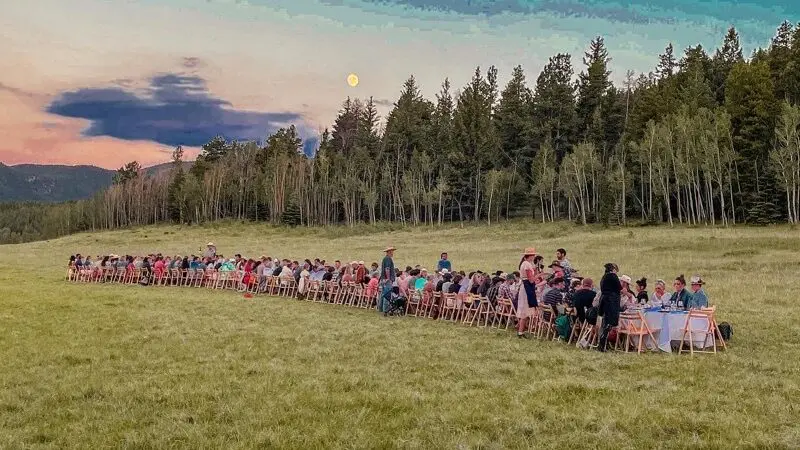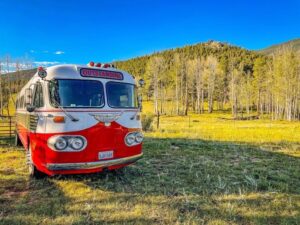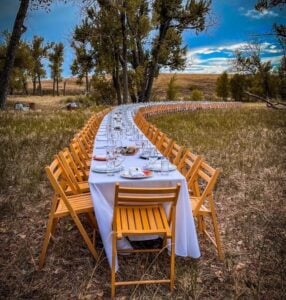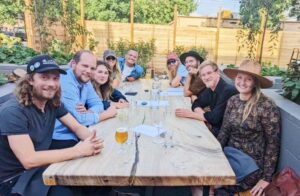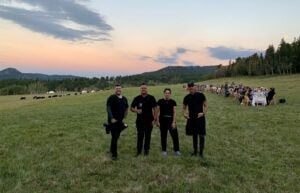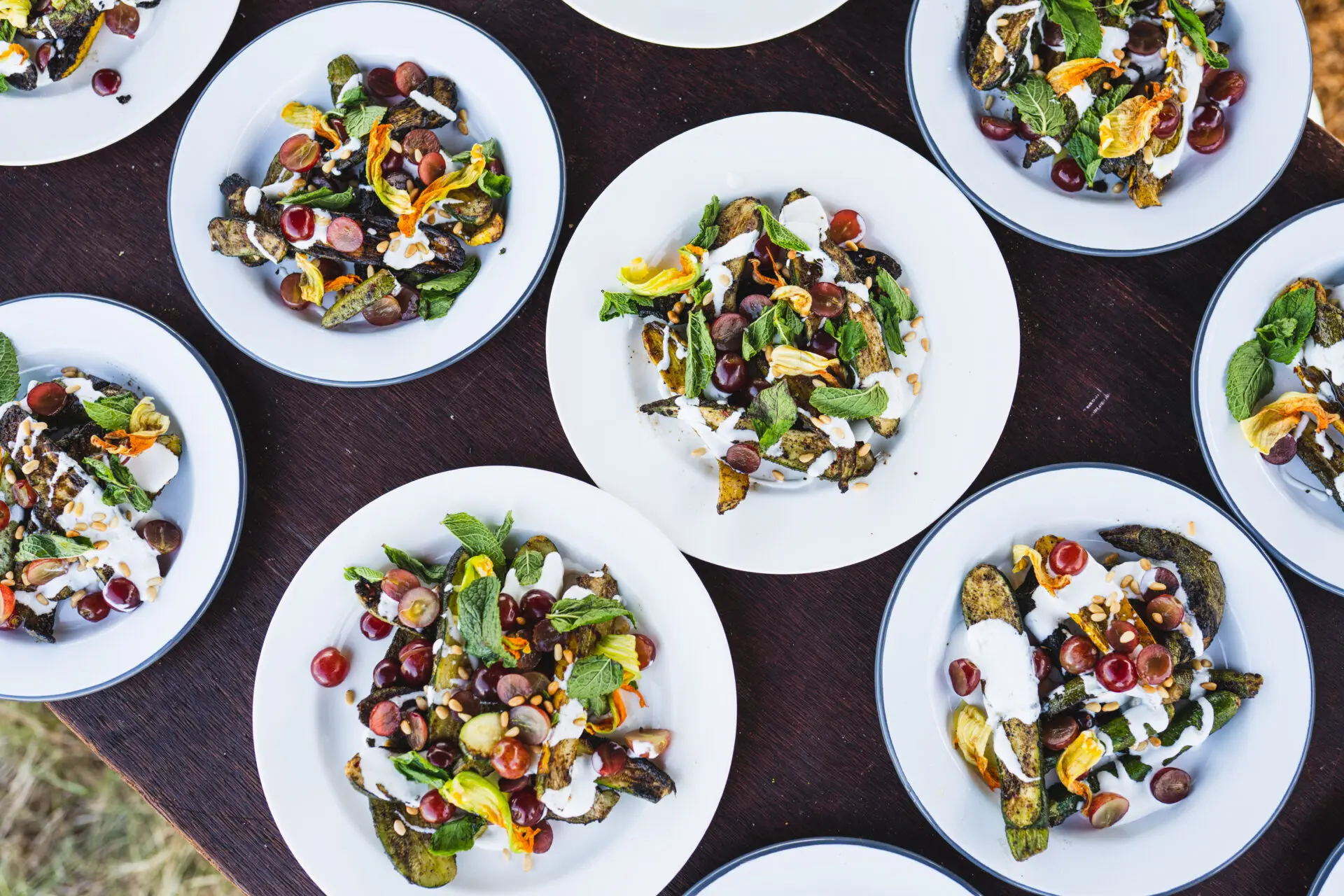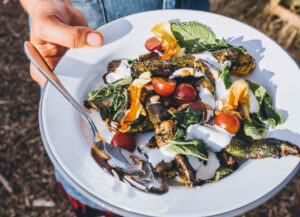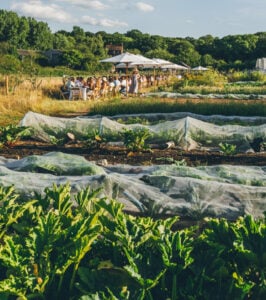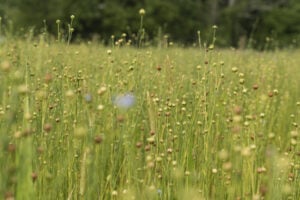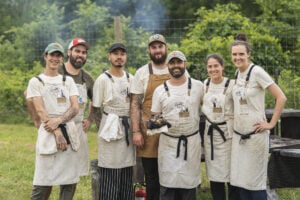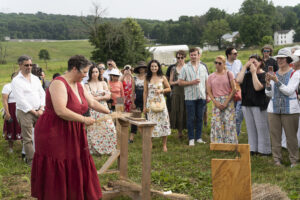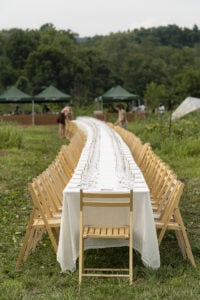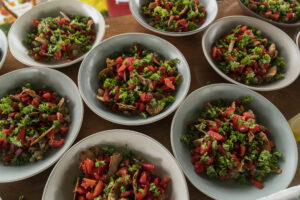September 2022
“A car is a sandwich, but the ocean is a salad.”
Murmurs of agreement around the table are happily interrupted by steaming plates of eggs and breakfast sausages, omelets, one gerbil-sized breakfast burrito, and the requisite order of pancakes for the table. The diner is about half full of what seem like regulars on this Wednesday mid-morning. The kermit-green walls are decorated with route 66 memorabilia, despite the fact that we’re hundreds of miles away from the iconic American highway, on a small town street lined with pine trees somewhere in Southern Maine. Or maybe upstate New York? I honestly can’t remember at this point.
Event days, while full of unique magic at every site, are all the same in several ways. They are long, they are sweaty, and they leave us exhausted, filthy—sometimes it’s desert dust, sometimes mud and rain, sometimes sunscreen and bug spray, but it’s always dirty—and hungry. So, after a long shower and a good sleep (so long as we don’t have any skunk visitors in the campsite…), we always hit up a local diner. Nothing hits the reset button like a big plate of eggs and over-buttered toast, endless pours of diner coffee, and the occasional watery whipped-cream-topped hot chocolate.
? or ??
“Is an omelet a sandwich or a salad?” Justin asks while a Western omelet drifts past his nose to the far side of the booth.
“It’s a sandwich.” Says Marcus.
“Look at that, it’s clearly a salad;” Brent remarks, staring down at his plate.
“I don’t know, I think I agree—it’s a sandwich.”
“How can you tell!?” Alexa, always exasperated by this recurring conversation, exclaims.
“A caesar salad is a sandwich” Brent repeats a common refrain.
“Let’s not get on this again…”
“Oyster?” Gab inquires, while stirring cream into a fresh cup of coffee.
“Sandwich.” Says Marcus, as he cuts a bite from the table pancakes, and the group reverently nods.
“Pop music?” Ariel asks as the song changes over the restaurant’s speakers.
“Obviously salad,” says Gab
“Salad,” Marcus agrees.
“Mhhmmm” Brent mumbles through a bite of Western omelet, which the group seems to have decided is a salad after all.
“I don’t know, it may be a sandwich.” Justin says thoughtfully, nodding to the tune. “Think about it. A pop band is a salad, but this song is a sandwich”
“Oh, I can see where you’re coming from with that;” Gab seems to rethink their argument.
“I don’t agree.” Marcus stands firm.
“How can we still be talking about this!?” Alexa exclaims, stabbing at her eggs Benedict in frustration.
We’ve developed a theory on the road, that comes up periodically (to Alexa’s great dismay)—everything in this world can be classified as either a sandwich or a salad. This is a well-recorded debate, but typically exists in the confines of food specifically. We’ve taken it well beyond the realm of food and will often find ourselves categorizing anything that comes to mind.
For instance…
A bouquet of flowers: ?
The couch at our AirBnb: ?
The OITF Trailers: ? ?
Farm Dinner: ?
The thing is, the tour crew spends a lot of time together. Not only on long days on site, but long drives and short sleeps in between, days off exploring new cities, and evenings eating Thai takeout watching Below Deck in roadside motels. We get to know each other very well—not just our coffee orders and favorite songs, but what makes a bad day better, what we miss most from home, who we call when we have a free minute, and why they matter. We learn each other’s outlooks on life, biggest priorities, and greatest fears. We may or may not remember each other’s middle names, though. It’s the silly conversations like this that get us through the many days of travel or help us pull through the most difficult events.
So, if you see us in the field sometime soon, feel free to offer your contribution to the game, but be ready with your argument as to why: salad or sandwich?

